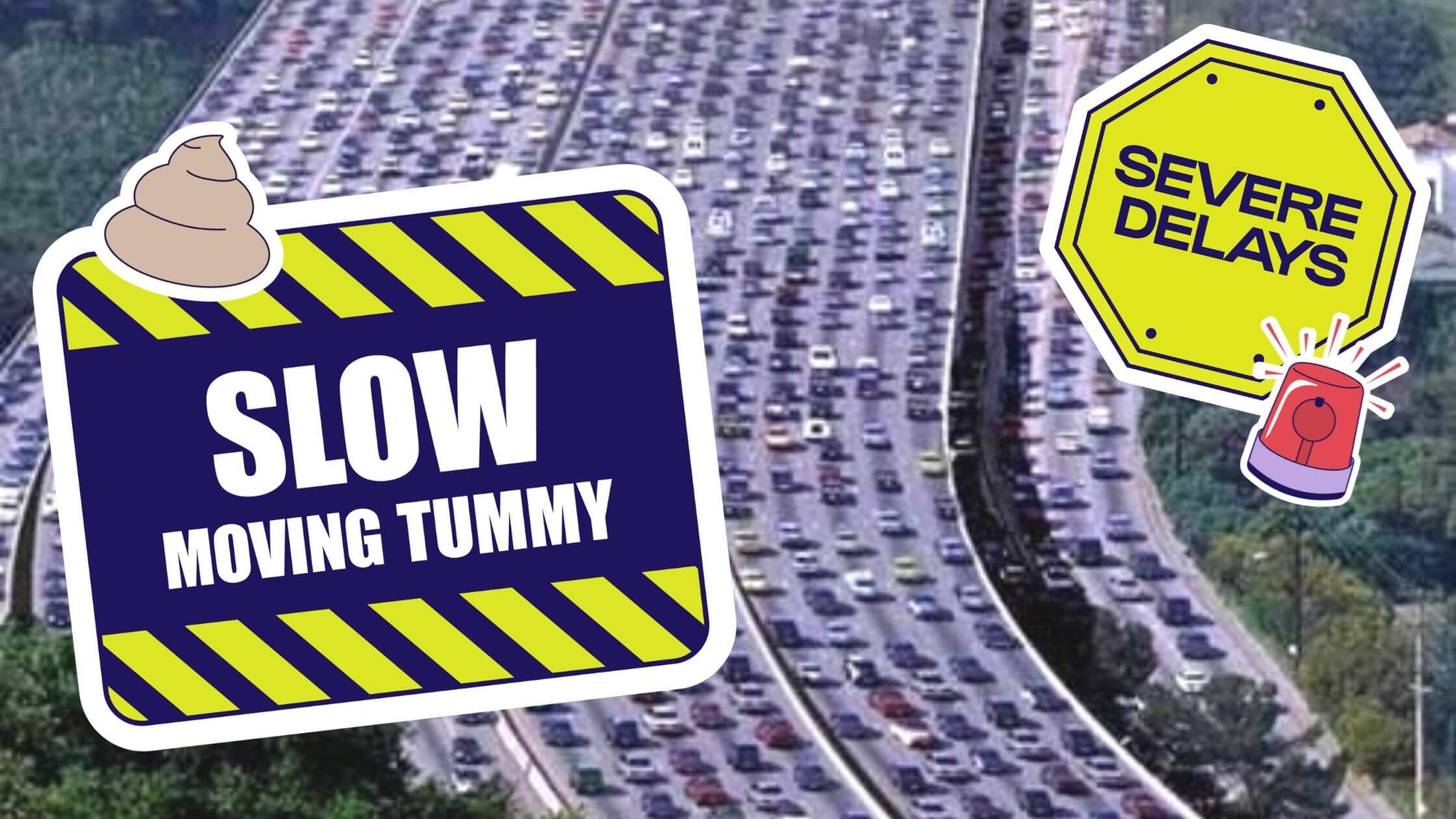How Do I Know If I Have IBS?
The gastrointestinal tract (digestive tract) is complex. It comprises several organs and requires lots of digestive enzymes and hormones to function optimally.
Because of its complexity, the digestive tract is prone to problems. One of the most common gastrointestinal disorders is irritable bowel syndrome (IBS), which affects more than 1 in 10 people across the world.
The problem is that many digestive disorders manifest with the same symptoms, such as bloating, excess gas, diarrhoea, constipation, and abdominal cramps. So, if you’re dealing with stomach issues, how do you know if IBS is the culprit?
In this article, we’re going to discuss everything you need to know about IBS. We will start by covering what IBS is and what causes it. We will then move on to the main symptoms of IBS and how to manage these symptoms with IBS remedies, including lifestyle changes and dietary adjustments.
What Is IBS?
Irritable bowel syndrome, which is most commonly referred to as IBS, is a chronic gastrointestinal disorder. Its symptoms are caused by over-activation of the muscles in the lower digestive tract.
The current estimated prevalence of IBS is 15-20%, although it’s likely that even more people deal with the common symptoms of irritable bowel syndrome but are undiagnosed.
It’s not a life-threatening condition, but it can severely impact a person’s ability to live normally. Those with severe IBS can have a reduced quality of life, especially if they don’t manage their condition effectively.
What Causes IBS?
There isn’t a single cause of irritable bowel syndrome. Instead, it’s thought to be caused by a number of things, including:
- Increased gut sensitivity
- Increased intestinal permeability (colloquially known as ‘leaky gut syndrome’)
- A decrease in gut motility, causing food to move more slowly through the digestive tract
- A reduction in gut microbiome diversity, resulting in fewer beneficial probiotic bacteria being in the gut
- Poor gut health due to infections and chronic inflammation in the lower digestive tract
- Autoimmune disorders
- Additional gastrointestinal disorders like small intestinal bacterial overgrowth (SIBO) or inflammatory bowel disease (IBD, which includes ulcerative colitis and Crohn’s disease)
Some research suggests that there may be a genetic component to irritable bowel syndrome, as you’re more likely to get an IBS diagnosis if your parent or sibling has been previously diagnosed.
Each of the above things may contribute to the increased smooth muscle contraction in the gut that occurs in IBS. When this smooth muscle contracts more than it should, it can cause abdominal cramping and pain.
What Are the Symptoms of IBS?
IBS symptoms can manifest in slightly different ways, depending on each person’s unique physiology, personal circumstances, condition severity, and pain tolerance. Certain lifestyle and dietary factors can worsen the symptoms of irritable bowel syndrome, and if a person isn’t managing their condition well, their symptoms will likely get worse.
Here are some of the common symptoms of IBS that healthcare professionals will use to identify and diagnose a patient with the condition:
- Bloating
- Excess gas, leading to burping and flatulence
- Abdominal cramps and pains
- Constipation or diarrhoea
- Appetite changes, resulting in weight loss or weight gain (more often than not, those with IBS experience weight loss because their excessive bloating and abdominal pains put them off eating)
Depending on the subtype of IBS that you have, you might be more prone to constipation or diarrhoea. If you’re more prone to the former, you may be diagnosed with IBS-C, and for the latter, IBS-D. Some people experience both constipation and diarrhoea, which could be diagnosed as IBS-M (M standing for mixed).
Tips to Manage IBS and IBS Symptoms
Irritable bowel syndrome can be tough to deal with, especially if you have severe symptoms. It’s not just a bit of bloating. It’s a serious condition that can impact your ability to eat a nutritious diet, socialise with loved ones outside your home, or maintain a regular exercise routine.
Whether you have IBS-C, IBS-D, or IBS-M, there are steps you can take and natural remedies you can use to keep your condition in check and improve your quality of life. Below, we’ve covered some helpful natural IBS remedies and top tips for managing IBS and IBS symptoms.
1. Consider adopting a low FODMAP diet
FODMAP foods refer to those that contain fermentable oligosaccharides, disaccharides, monosaccharides, and polyols, all of which are carbohydrates. Your gut ferments the carbohydrates in FODMAPs, producing lots of gas and potentially worsening IBS symptoms like bloating and abdominal cramps.
So, what foods are considered FODMAPs? Here are the foods to limit if you have IBS and want to trial a low-FODMAP diet:
- Fermentable oligosaccharides - wheat, rye, garlic, onions, apples, and pears
- Disaccharides - dairy products, such as milk, cheese, and yoghurt
- Monosaccharides - watermelon and high-fructose corn syrup
- Polyols - apples, apricots, pears, cauliflower, green beans, and artificial sweeteners
If you’re following a FODMAP diet to relieve your IBS symptoms, you’re safe to eat rice, oats, buckwheat, quinoa, most vegetables, berries, bananas, citrus fruits, nuts, seeds, tofu, tempeh, fish, dairy-free cheese, and lactose-free yoghurt.
2. Stay hydrated
Often, something as simple as drinking more water can be enough to relieve or at least reduce IBS symptoms. Dehydration can cause the movement of food to slow down in the digestive tract, leading to bloating, gas, and constipation, all of which are common IBS-related symptoms.
So, a quick and simple option for relieving and managing IBS symptoms is drinking more water. Aim for at least two litres a day, although you may need more if you exercise a lot or live in a country with a hot and humid climate.
3. Consume a daily digestive enzyme supplement
Your body produces digestive enzymes all by itself (unless you have a condition that reduces its ability to produce these enzymes, such as exocrine pancreatic insufficiency (EPI)). However, you can take a digestive enzyme supplement to support your digestion.
Digestive enzymes help to break down the foods that you eat into smaller pieces that your body can easily absorb into the bloodstream. Once in the bloodstream, these tiny molecules can be transported around the body to where they need to be for further use.
We offer a digestive enzyme supplement at Wild Dose that can reduce bloating and provide much-needed relief from your digestive symptoms. A Dose For Bloating contains seven digestive enzymes alongside two million probiotics and seven plant extracts to provide the perfect bloat-busting combination.
4. Reduce your stress
Stress can exacerbate digestive symptoms. When you’re highly stressed, you might notice that your bloating worsens, you get constipated or have diarrhoea, or you experience more abdominal pains than usual.
You can thank the vagus nerve for these effects. The brain and gut are directly linked by this long nerve that runs all the way down your spinal cord. When your brain perceives danger (I.e., when you’re stressed), it sends signals to the gut through the vagus nerve, causing digestion to slow down and associated symptoms to get worse.
Practice stress management techniques like meditation, deep breathing, and forms of light exercise, such as yoga. You might also find benefit in reducing your workload and spending more time relaxing with friends and family, although we understand that this is easier said than done in today’s work climate.
5. Consider taking natural remedies
Herbs have a wide range of health benefits, which is why they’ve been used for centuries in medicine and healing practices. It’s also why they continue to be popular today, even with advanced medical treatments and the advent of artificial drugs.
Some herbs are better than others for reducing the common and normal symptoms of bloating, constipation, and other digestive symptoms. If you’re searching for effective plant-based remedies to help manage your IBS, we recommend:
- Chamomile - has calming effects on the smooth muscle tissue in the digestive tract and reduces inflammation.
- Cinnamon - a potent antioxidant and anti-inflammatory that can improve circulation to the digestive tract, resulting in more efficient digestion.
- Fennel - known to reduce bloating and support the digestive tract and liver.
- Garlic - has strong anti-inflammatory and antimicrobial properties to support digestion, improve gut microbiome diversity, and reduce inflammation.
- Ginger - has potent anti-inflammatory and antioxidant properties, promoting better gut health.
- Liquorice root - another anti-inflammatory option that can reduce any irritation in the digestive system and promote better gut health.
- Peppermint - known to calm the actions of the intestinal smooth muscle to reduce abdominal cramping and digestive pains.
- Turmeric - contains curcumin, a potent anti-inflammatory compound that can reduce inflammation in the gut and provide relief from IBS symptoms.
6. Maintain a healthy weight
Many people struggle to maintain a healthy weight when they suffer from IBS due to difficulties digesting certain foods or ingredients and the symptoms they experience after eating such foods. Often, IBS sufferers prefer to avoid these foods altogether to prevent digestive symptoms, causing a restrictive diet that makes it tough to maintain a stable weight.
Of course, this isn’t the problem for everyone with IBS. In fact, some people can struggle with weight gain when they have irritable bowel syndrome because traditionally healthy foods upset their stomach.
Remember those FODMAPs? Well, some of these FODMAPs are grains, fruits, and vegetables, so if you react badly to FODMAPs, your healthy options are limited. At least, they’re limited in comparison to someone who doesn’t have IBS and can eat FODMAP foods to their heart’s delight.
To maintain a healthy weight, make sure you’re fuelling your body with enough calories without consuming too many. Most people need between 1800 and 3000 calories daily, depending on age, height, muscle mass, physiology, and activity levels.
It can be difficult to figure out your basal metabolic rate (the number of calories your body needs just to stay alive), as well as the calories needed to make up for those burnt during exercise. This is something that takes trial and error to figure out by yourself.
Alternatively, you can hire a personal trainer (PT) or dietician to help you with these calculations. A dietician can also help you with a nutritional meal plan to follow to ensure your body receives all the essential nutrients it needs to thrive without aggravating your IBS symptoms.
Part of maintaining a healthy weight also involves staying active. You don’t need to run for miles and miles a day to stay physically active. A couple of 20-30-minute walks a day can suffice!
7. Get enough sleep
Sleep might sound irrelevant to digestion, but a lack of high-quality sleep is a huge stress on the body. As we’ve already discussed, stress is one of the leading causes of IBS flare-ups, so avoiding stress wherever possible is key to managing your irritable bowel syndrome.
Remember that it’s during sleep that your body rests, recovers, and regenerates. Missing this crucial downtime can be detrimental to every part of your body, including your digestive tract and gut bugs.
Aim for at least seven (ideally eight to nine) hours of undisturbed sleep each night if possible. If you have young children, needy pets, or noisy neighbours, this might be easier said than done, but try your best!
Make your bedroom environment as conducive to great sleep as possible by keeping your room dark, relatively cool, and quiet. Invest in an eye mask and noise-cancelling earplugs if you struggle to block out light and noise. Encourage your children to get into a healthy bedtime routine so that they’re fast asleep by the time you want to hit the hay.
You’ll notice after a couple of weeks of adequate sleep, your digestion also improves. If you’re in the middle of an IBS flare-up, you should notice a decrease in your symptoms severity because your body is feeling less stressed, thanks to your healthy sleep routine.
Of course, you will also need to tackle any other underlying causes of your IBS flare-up, such as changes to your diet or work-related stress, in order to relieve your symptoms completely. Always speak to your doctor or specialist nurse for professional medical advice when you’re in the middle of a nasty IBS flare-up.









